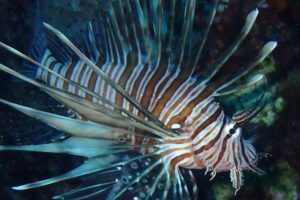
Study reveals lionfish invasion has rapidly spread in the Mediterranean Sea, threatening biodiversity
A new study details the rapid spread of the lionfish invasion in the Mediterranean Sea and its potential ecological impacts.
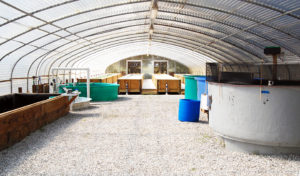
Aquaponic system produces red drum, saltwater vegetable species
A project in Florida is studying the feasibility of a marine aquaponic system containing red drum and two native saltwater species. Water that exits the plant raceways is filtered and recirculated to the fish tanks. In tests, sea purslane grew rapidly, while saltwort took almost four months to adapt. The fish exhibited high survival and achieved a feed-conversion ratio of 1.2.
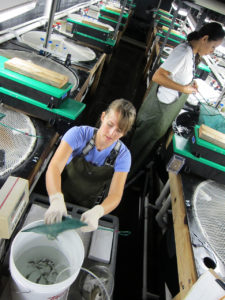
Traditional, fermented soybean meals compared in feeds for marine fish
Fishmeal sparing in aquafeed is often limited by the presence of anti-nutritional factors found in plant-derived feedstuffs. Fermentation may be a cost-effective means of addressing such factors and improving utilization of plant ingredients in feed.
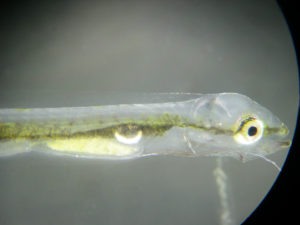
Sea bass hatchery feeds artemia substitute to increase production, stability
After experiencing disappointing survival rates following traditional artemia-based rearing protocols, the French hatchery Aquastream turned to a micropellet alternative to artemia.
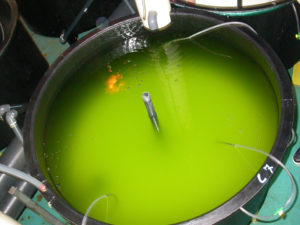
Algae alternatives serve in larval rearing of sea bream
Sea bream fry are produced using the greenwater technique in which microalgae are added to larval-rearing tanks during the first 20 to 30 days after hatching.
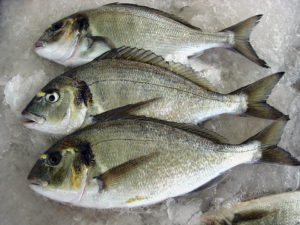
Soy products replace fishmeal, fish oil in gilthead sea bream feed study
A laboratory study indicated gilthead sea bream can be grown on feeds in which fishmeal and fish oil levels are reduced from traditional values using soy products.
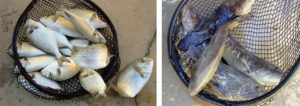
By-the-numbers nutritional bioenergetics for optimal feeding
Using a series of equations, energy and protein requirements for every fish species can be calculated and adapted to changing conditions.
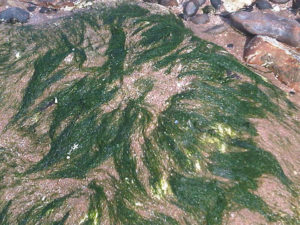
Land-based drip-irrigated culture of sea lettuce
A laboratory prototype methodology was developed for cost-effective, water-sparing drip-irrigation of seaweeds as a model for larger-scale land-based units.
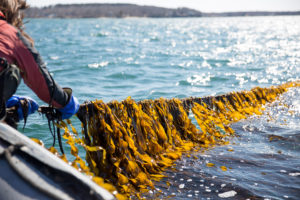
Kelp is the climate-friendly crop that could
Kelp aquaculture is poised for growth on both U.S. coasts, but one grower network in Maine is building a brand and demand for domestic seaweed.
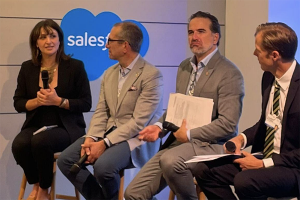
Maine kelp company discusses blue economy issues at World Economic Forum in Davos
Atlantic Sea Farms CEO speaks on blue foods and climate-change adaptation at World Economic Forum in Davos, Switzerland.
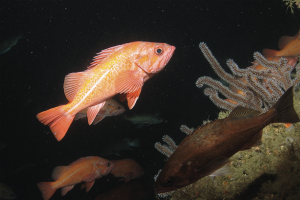
How data from remotely operated and autonomous underwater vehicles inform fisheries management
Management of fisheries in Alaska, the Pacific Northwest and the Gulf of Maine are starting to be informed by decades’ worth of data collection using remotely operated vehicles and autonomous underwater vehicles.
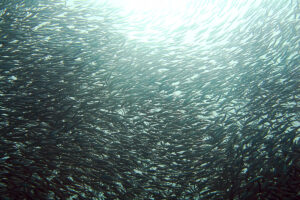
Managing fisheries for maximum nutrient yield
Maximum nutrient yield policies promote access to fish to close nutrient gaps, maximize wild fish and contribute to global food and nutrition security.
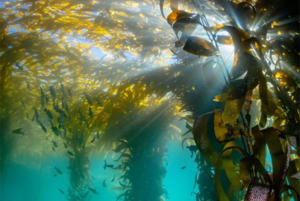
Study: Denser kelp forests are better suited to survive ocean warming
New research reveals that denser and more sheltered kelp forests can withstand serious stressors amid ocean warming.
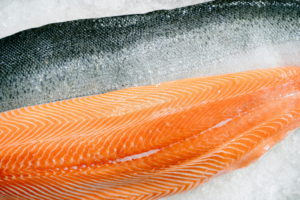
Fillet quality and sensory characteristics of Atlantic salmon fed black soldier fly larvae meal
Study shows diets with black soldier fly larvae meal did not affect general fillet parameters compared to salmon fed a commercial diet.
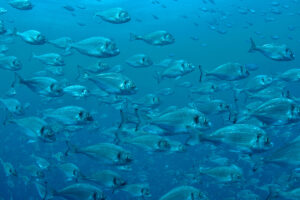
Efficient application of health-promoting feed additive supports sustainable aquaculture en route to carbon neutrality
Sanacore®GM, a broad range health-promoting feed additive, has been shown to reduce carbon emissions in sea bream farming by 7.5 percent.
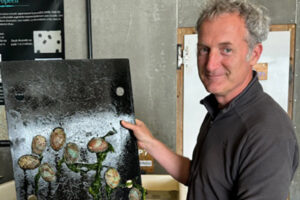
Abalone, against all odds: How one French shellfish producer learned to survive
France Haliotis illustrates how determination can make the difference between survival and success in abalone aquaculture.
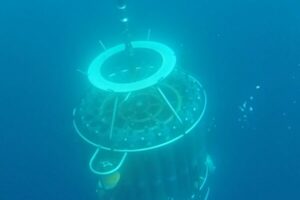
Study: Ocean warming boosts deep sea phytoplankton, threatening marine ecosystems
A new study indicates deep sea phytoplankton thrive with ocean warming, raising concerns about marine ecosystems.
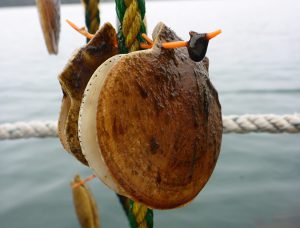
Maine scallop farmers get the hang of Japanese technique
Thanks in part to a unique “sister state” relationship that Maine shares with Aomori Prefecture, a scallop farming technique and related equipment developed in Japan are headed to the United States. Using the equipment could save growers time and money and could signal the birth of a new industry.
